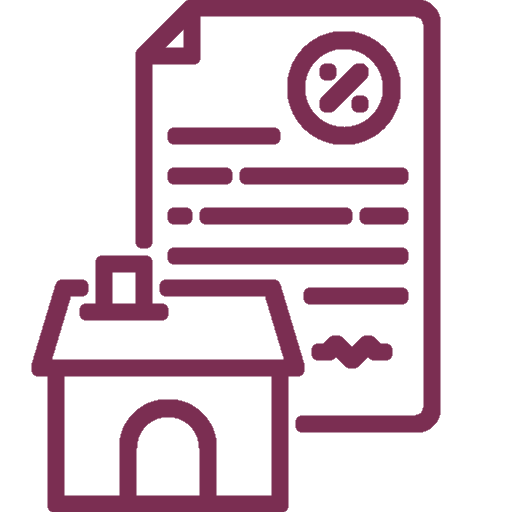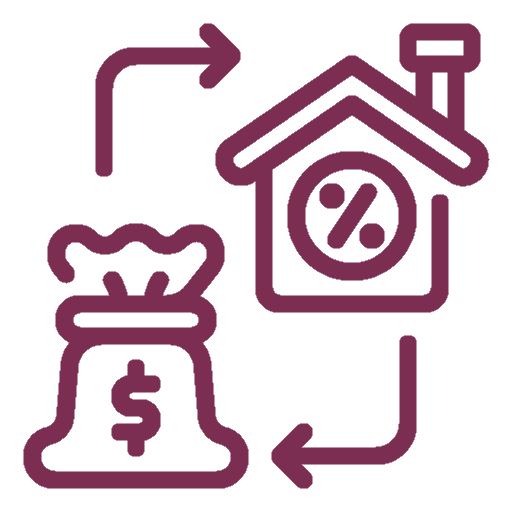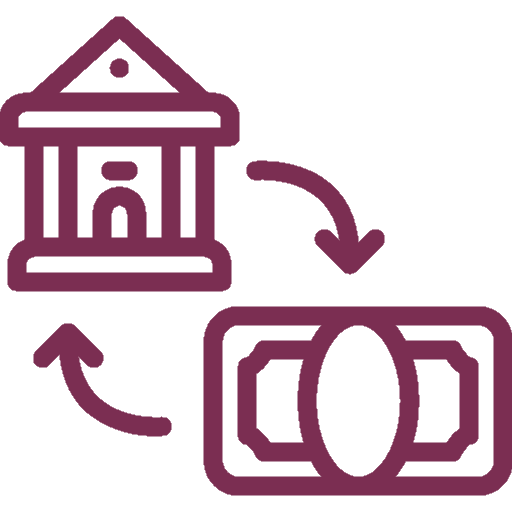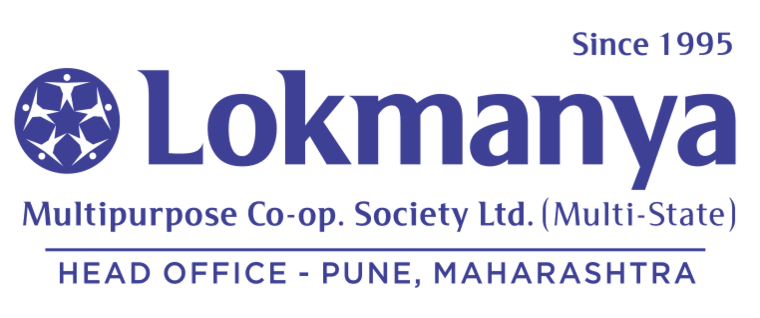Enquire Now

Enquire Now
Loan Against Property - An overview
A Loan Against Property or LAP helps you to purchase or maintain a home, land, or other types of real estate. Being secured in nature, LAP demands collateral against the loaned amount. LAP offerings against your commercial or residential property put you in a position to use the value locked up in your property to meet any expenses of any nature.
You may select a high-value loan depending on the value of your property collateral for your borrowing.
Loan Against Property Features and Benefits

Low-Interest Rates
LAPs typically offer lower interest rates compared to unsecured loans, making them a cost-effective borrowing option.

Low EMIs
Due to longer repayment tenures and lower interest rates, LAPs generally come with affordable monthly installments (EMIs).

Faster Approvals
Lenders often provide quicker approvals for LAPs since the loan is secured against property, reducing the risk for the lender.

Minimal or Low Prepayment Charges
LAPs usually have minimal or no prepayment penalties, allowing borrowers to repay the loan early without significant additional costs.

Funds for Multiple Uses
The funds obtained through LAP can be used for various purposes such as business expansion, education, medical expenses, or debt consolidation.

Residential and Commercial Properties Eligible as Collateral
Both residential and commercial properties can be mortgaged to secure a LAP, offering more options for borrowers.

Retain Ownership of Mortgaged Property
Even though the property is mortgaged, ownership remains with the borrower, allowing them to continue using the property as usual.
Loan Against Property: Interest, Documents & Eligibility
Loan Against Property documents
Loan Against Property (LAP) offered by Lokmanya follows a simple documentation process. If you are a salaried or self-employed individual, you are required to submit the following documents along with the signed application form for Loan sanction.
- Aadhaar Card, PAN Card, Passport, Voter ID etc.*
- Salary Slips (for salaried individuals), Bank Account Statements, Income Tax Returns**
- Title Deeds, including chain of documents of the previous owners (if any), property approval plan and non-encumbrance certificate***
- Appointment letter, in case you are associated with a company for less than a year**
- Bank Statements of the last 6 months to check Loan repayment capability, if you have any ongoing Loan with the Bank**
- Passport size photographs of the applicant and co-applicant, to be affixed on the application form****
- Business profile documents for self-employed non-professionals.****
Mandatory documents for Loan against Property
Proof of Identity
Proof of residence
Property documents
Loan Against Property Eligibility
Here are the necessary eligibility requirements for securing a Loan Against Property :
- Age: Applicants should typically be between 21 and 65 years of age.
- Income: Stable income from employment or business is required to ensure repayment capability.
- Property Ownership: The property must be owned by the applicant, and it can be residential, commercial, or industrial.
- Credit Score: A good credit score (typically 650 or above) is preferred to qualify for a loan against property.
- Employment Status: Both salaried individuals and self-employed professionals/business owners can apply.
- Loan Amount: The eligible loan amount is usually up to 70-80% of the property’s market value, depending on the lender’s policy.
Loan Against Property FAQs
1. What is a Loan Against Property?
A Loan Against Property (LAP) is a secured loan where you pledge your residential, commercial, or industrial property as collateral to avail of a loan. The loan amount is typically a percentage of the property’s market value.
2. Who can apply for a Loan Against Property?
Both salaried individuals and self-employed professionals/business owners who own property and meet the eligibility criteria can apply for a Loan Against Property.
3. What types of properties are eligible for a Loan Against Property?
Both residential and commercial properties are eligible for a Loan Against Property. Some lenders may also accept industrial properties, depending on their policies.
4. How is the loan amount decided for a Loan Against Property?
The loan amount is usually determined based on a percentage (typically 70-80%) of the current market value of the property being pledged, as well as the borrower’s income and repayment capacity.
5. What are the interest rates for a Loan Against Property?
Interest rates for a Loan Against Property are generally lower than those for unsecured loans because the property serves as collateral. Rates can vary based on the lender, the borrower’s credit profile, and market conditions.
